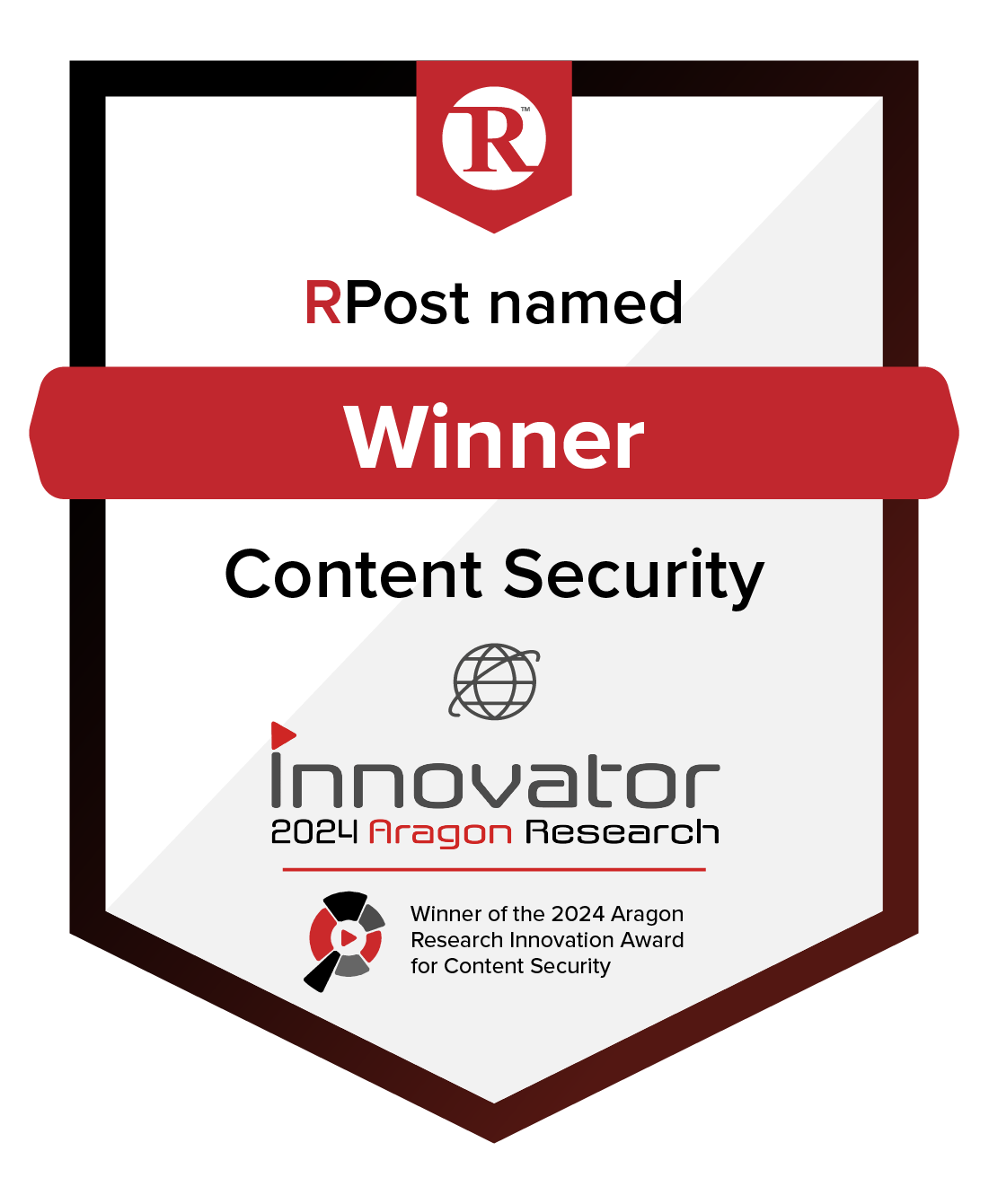
By Keith Ecker
Peter Prinsen, general counsel of The Graham Co., an insurance brokerage firm, recently learned that knowing whether a recipient received an email can be more important than the content of the email itself.
The brokerage routinely receives information about a claim from the client and then reports that claim to the insurance carrier via email. Normally this is a smooth process. But the company hit a snag several months ago when one of the carriers said it hadn’t received a $60,000 claim.
“The carrier was claiming the insured did not provide notice in time and thus was going to deny coverage,” Prinsen says. “Our client, in turn, would have turned around and filed suit against us if this was the case.”
But The Graham Co. had planned ahead by implementing Registered Email™ last year. Like its non-digital counterpart certified mail, Registered Email™ provides a quick and affordable method to verify the sending and receiving of electronic messages.
Because Prinsen had sent the claim using Registered Email™, he was able to verify that the message had reached the carrier’s system and stave off a lawsuit.
Prinsen’s averted email debacle exemplifies one of Registered Email™’s key uses—mitigating risks associated with sensitive communications. But thanks to a recent court case that highlights the need for a method to authenticate emails when submitting them as evidence, Registered Email™ might be finding a new use.
“Registered Email™ really creates a way to track a lot of stuff,” says Dennis Kennedy, a St. Louis-based legal technology consultant. “At trial I believe it will meet a court’s standards, in most cases, for parties to rely on it to prove authenticity rather than having to foot the cost of a computer forensics expert.”
Message Mechanics
Registered Email™ comes in different flavors, each employing a unique method to capture information about the email’s transmission and authenticate its contents.
One leader in the market is California-based RPost. The company has just started to target in-house legal teams, although it’s been providing its services to government, associations and law firms since 2003.
RPost users have a special “Registered Email™” button on their email application that they can click to send registered messages. When a message is sent, RPost’s system tracks the message to the recipient’s server. As the message hits the server and the recipient views the message, RPost packages this information in the form of an email receipt and sends it to the sender.
This receipt has an encrypted attachment on it, and in that attachment is all the data that comprises the original email, including its content, the content of its attachments and timestamps regarding its transmission and reception.
“If someone challenges the transmission or content of an email, the sender can forward the receipt to RPost, and RPost will validate the information by decrypting the receipt’s contents,” says CEO Zafar Khan.
The other main provider of Registered Email™ is Datawitness. Unlike RPost, Datawitness stores copies of the original emails on its servers and then copies them to microfilm, which can last more than 100 years.
Datawitness’ service, which CEO Jag Gillan describes as a “virtual notary,” plugs into a user’s email platform. When the user sends a Registered Email™, it goes to Datawitness, which then stores the email in a database and sends a link to the intended recipients. When the recipients click on the link, they are taken to the email. Meanwhile, Datawitness sits in the background, logging the recipient’s actions.
Email on Trial
Although both major service providers function differently, the end result is the same—a means of authenticating the transmission, reception and content of an email. And thanks to the recent court decision Lorraine v. Markel, there’s a greater need for these services.
The case concerned Chessie, a pleasure boat that was struck by lightning. The insurer paid for the damage. But after pulling the ship from the water, the owner discovered there was damage to the hull, too. The insurer, having already paid out on the initial claim, refused to pay out on the subsequent claim, igniting the dispute.
Before the case went to trial, both parties attached emails to their pleadings. These emails had been sent during the course of negotiating the arbitration agreement in the insurance policy. That’s when District of Maryland Chief Magistrate Judge Paul Grimm did something shocking. The judge ruled in May that the emails were not admissible (even though neither party had challenged the authenticity of the emails) because parties failed to provide proof as to the emails’ authenticity.
In his 101-page opinion, Grimm reviewed the requirements for admitting evidence under the Federal Rules of Civil Procedure as they relate to email and emphasized the need for a process, whether “expert testimony or a comparison with authenticated exemplar,” to establish emails’ admissibility.
Registered Email™ may be one way to accomplish this. RPost uses encryption to ensure the original email is secure and unable to be manipulated while Datawitness actually stores a copy of the email on its secure servers, essentially serving as a third-party witness. Both methods don’t just provide a way for companies to gain access to their original emails; they also provide a way to prove authenticity.
“If you’re going through the e-discovery process, you might as well spend the money and do what you can to make sure your evidence holds greater weight than that of the other party, ” Khan says.
Digital Stamp
For a service that could make or break a case, Registered Email™ is relatively cheap. RPost’s most popular sales model allows customers to purchase anywhere between 500 and 5,000 registered ¬emails, with the cost of a 5,000 block set at about $3,000.
“Companies can enable everyone in the organization to have the ability to send Registered Email™ for about the cost of a stamp per use,” Khan says.
Datawitness’s prepaid pricing model allows customers to purchase blocks of Registered Email™s they can use at their discretion. The cost for a prepaid block depends on volume. The cheapest rate Datawitness offers is $.12 per email, while the most expensive—buying one email at a time—is $6.
“We have a client that leases property,” Gillan says. “They probably push out about 12,000 leases a month. So they’re a candidate for the $.12-per-email price. What does that $.12 per email give them? Peace of mind and accountability.”

January 24, 2025

January 16, 2025

December 23, 2024

December 12, 2024

November 21, 2024